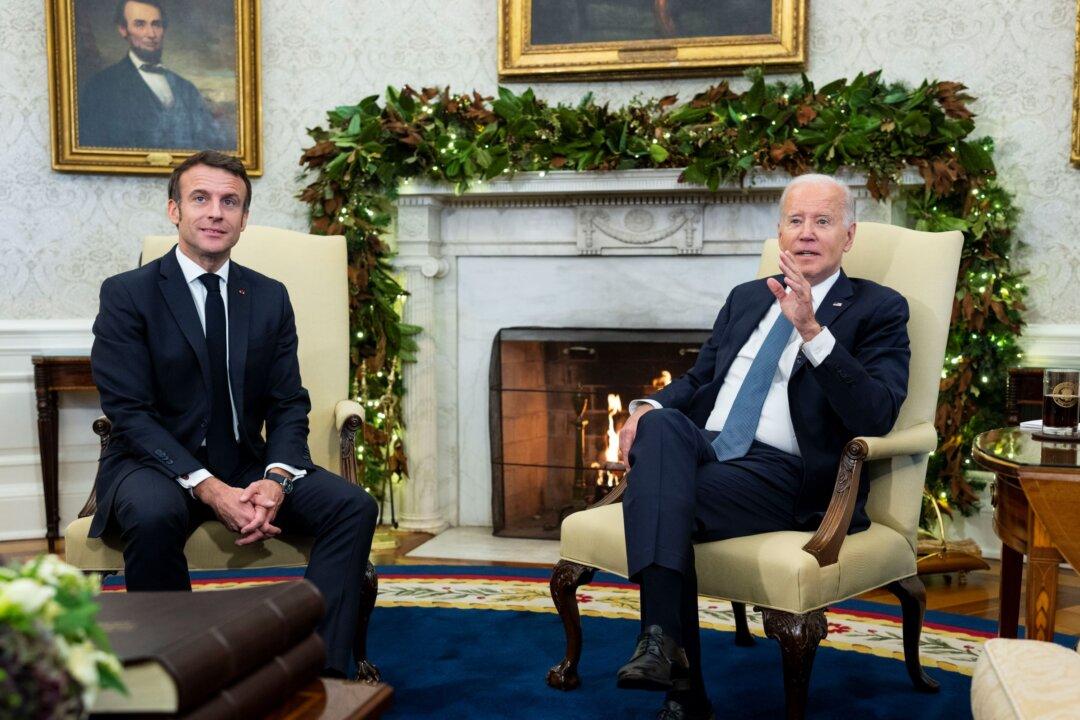Responding to pointed criticism from French President Emmanuel Macron about the Inflation Reduction Act, President Joe Biden admitted that the $740 billion tax-and-climate law contains “glitches” but defended the legislation after the two leaders met in the Oval Office on Dec. 1.
“The United States makes no apology, and I make no apologies, since I wrote it, for the legislation,” Biden said in a joint press conference after the summit with Macron. “But there are occasions when you write a massive piece of legislation, there’s obviously going to be glitches in it, and the need to reconcile changes.”





